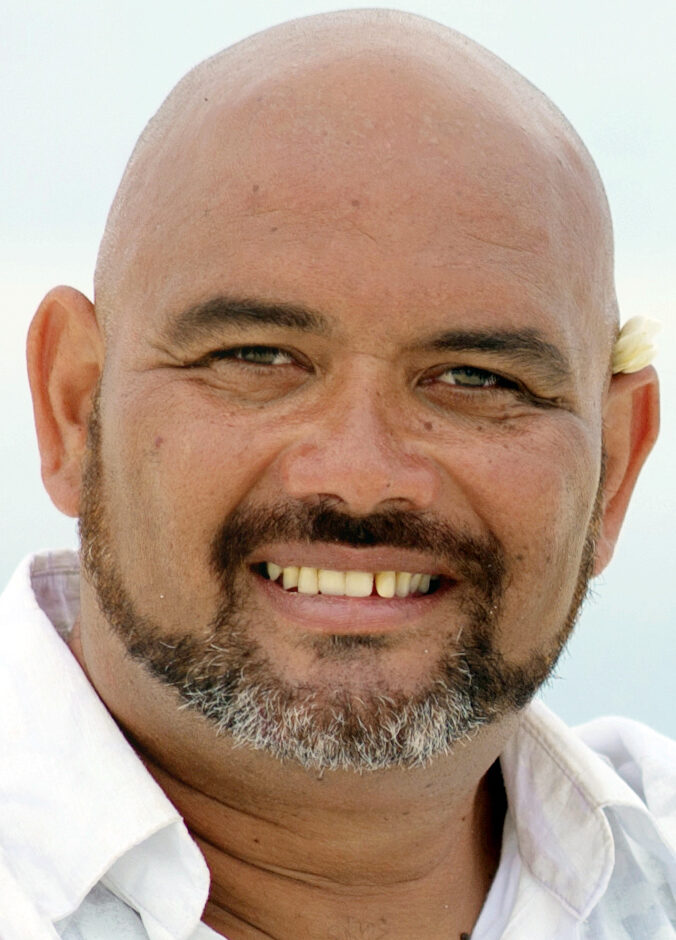Thomas Wynne: He who holds the pen holds the power
Saturday 25 May 2024 | Written by Thomas Tarurongo Wynne | Published in Editorials, Opinion

Thomas Wynne.
Across the globe, people have had enough of corruption, enough of nepotism, enough of the rule of might by certain families, certain names and political economic and cultural privilege above all others, writes Thomas Tarurongo Wynne.
Read any history book on the country named and legislated by the New Zealand government in 1901, that we know of as the Cook Islands, and somewhere in those first few paragraphs you will see a statement, often written as fact that we became part of Britain and then given to New Zealand, out of a fear the French would take us over.
From Te Ara, the New Zealand dictionary, to any other history book you could mention, this statement on the fear of French rule is written. The only problem with it is it is simply not true. There is no documented evidence suggesting that France had any specific intentions or efforts to take over the Cook Islands as a territory, but he who holds the history pen holds the power, especially when it comes to telling the story of ourselves.
Clearly, the Cook Islands’ status as a British protectorate and later as a New Zealand-administered territory would have complicated any French ambitions in that specific area – and we weren’t predominantly Catholic – but that’s another story of how Protestant London Missionary work and those of Franch Catholic’s led to France annexing New Caledonia in 1853. Because he who holds the pen of the Bible also holds the power.
France has a long history of continued colonial activity, in territories such as, French Polynesia, Wallis and Futuna and of course New Caledonia. These territories were part of France’s broader colonial empire building during the 19th and early 20th centuries and remain in the clutches of the French government based in Paris. Their control is administered not just by legislation, or military might but more by the power of the dollar, or to be more precise the French Franc or CFA. Because he who holds the pen to the cheque book also holds the power.
The French Franc, specifically the CFA Franc, plays a significant role in the ongoing economic and political influence of France in its former colonies in Africa and the Pacific. The CFA is a currency used in 14 African countries, which are divided into two French currency unions – the West African Economic and Monetary Union (WAEMU) and the Central African Economic and Monetary Community (CEMAC), as well as its former colonies like New Caledonia that use the CFA today.
Economic control is administered in these countries through several financial control mechanisms including a fixed exchange rate, foreign exchange reserves held in the French Treasury, meaning there is limited ability by French territories to enact any independent monetary policy since their currency is tied to the CFA and the Euro ensuring economic dependence to France and centralised in Paris.
Development and aid in CFA Franc countries often comes with conditions that can influence local policies, though this is not confined to France as a former coloniser. This aid can be a tool for maintaining influence, as it often requires alignment with French economic and political interests. African and Pacific leaders, economists, and civil society groups, rightfully argue, that the currency perpetuates economic dependency and hampers the development of the CFA Franc countries. Because he who holds the pen of the banking system holds also the power.
No column can capture the complexity of this situation or the varying or competing views, interests and geopolitical forces moving on New Caledonia as we speak. They themselves, the Kanak peoples, must in my view, be able to determine their future and they must be able to control the narrative of their destiny both French and Kanak because the two are inextricably entwined. In the end, it is the people who hold the power, and not the banks, or the history writers, not governments or even church institutions.
And though they may hold it for a time, that time is near its end when boots are on the ground also. Across the globe, people have had enough of corruption, enough of nepotism, enough of the rule of might by certain families, certain names and political economic and cultural privilege above all others. Because in the end it is the people that hold the power – they always have – nonetheless we pray for peace in New Caledonia, though we also acknowledge peace always comes at a high price.














































